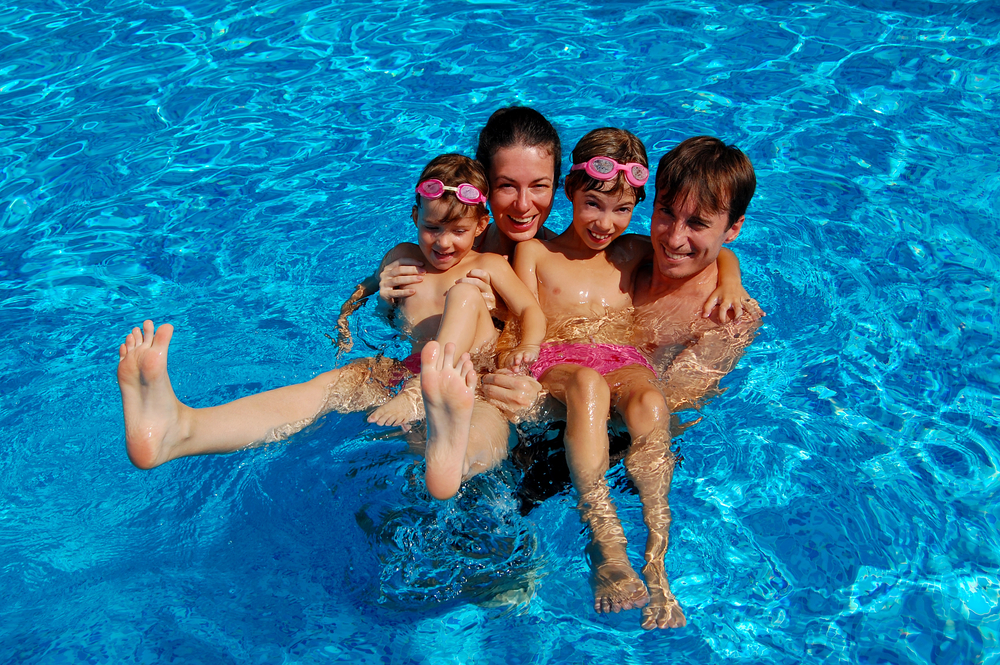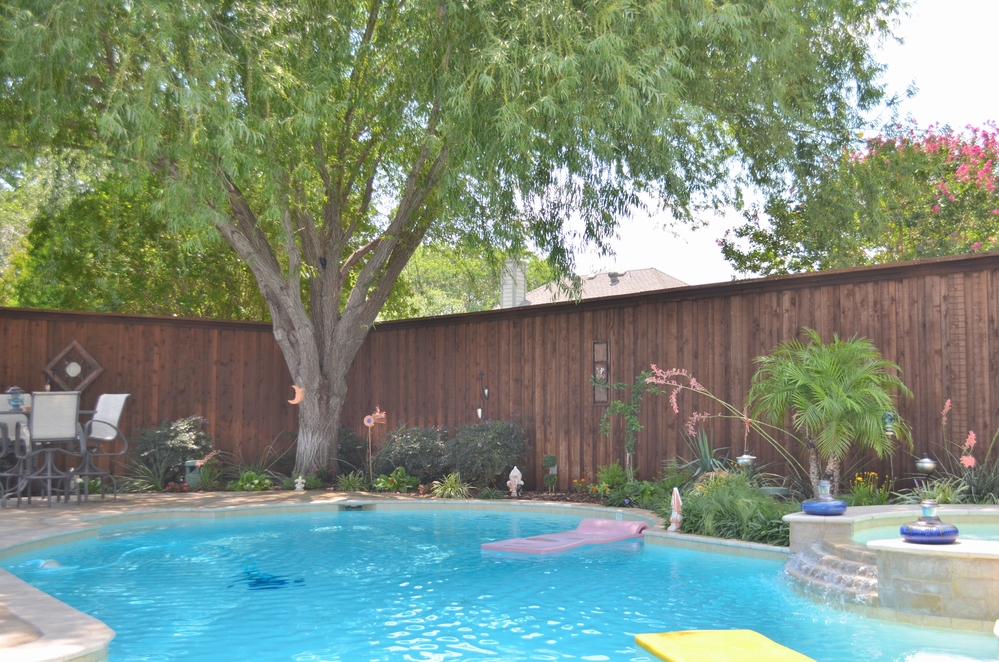A swimming pool is exciting, fun and a way to get a healthy lifestyle but without safety measures and devices in place, it could become a dangerous spot for children, pets and even adults. We have put together 5 swimming pool safety tips and devices to consider using for your swimming pool to make it the “safest room in the house.”
Pool owners, especially those with young children and pets in the house, know that the number one, continual consideration needs to be swimming pool safety. Pool owners need to be ever vigilant and enforce all rules of the pool. No one wants the pool to become a scary place, but cautious safety is crucial and children need to have a healthy respect for water and understand they are never to go into the water alone.
It is up to the adults in the household to ensure there are layers of safety in place to keep everyone safe. Putting in safety devices that don’t require your input — self-locking fences, floating safety alarms — can help keep everyone safe even if you forget to set an alarm.
5 Swimming Pool Safety Tips And Devices

Your swimming pool contractor is the best source of information on pool safety and a layer of safety. Also, the area of the country in which you live may have specific safety regulations that pool owners must follow.
Here are a few safety layers to consider
- Door alarms — from the house to the outdoors. This is a great idea whether you have a pool or not if you want to ensure a curious child doesn’t open the door and just go out to play.
- Pool safety fences — there may be rules and regulations that need to be adhered to regarding their construction.
- Pool safety nets — these can fit over the top of a traditional pool cover or can be used alone.
- Pool safety covers
- Pool fence alarms — an alarm that sounds if the gate is opened. Some can alarm as well if the gate hasn’t been closed.
- Floating pool alarms — these can be removed when you’re swimming and just set back in to float when you’re done
- Swim lessons — every one who uses the pool should know how to swim. This doesn’t mean that children should ever be left alone and you may still want to have your child wear a life vest when he or she swims.
- Constant pool supervision — NEVER leave anyone alone in the pool.
- Motion-activated cameras — sends an alert when someone enters the pool area.
- Moisture-activated pool safety bracelets for the children — simple safety device.
A pool barrier and there are several styles, is one of the best ways to enhance pool safety and keep children and pets safe.
Tips for choosing a pool barrier and some types (be prepared for an odd one!)
There are many types of barriers including:
- Safety fence — one that cannot be scaled. A chain link fence is easy to climb. Choose a safety fence that is aesthetically pleasing as well as safety oriented
- Outdoor fireplaces and kitchens
- A decorative wall
- Pool house
- Thorny bushes — no one wants to climb through this to get into the pool, right?
- Pool covers and
- Pool safety nets
Pool fencing, pool covers and pool safety nets are typically the most cost-effective and traditional of covers. Pool fencing and locking gates are required by law and must prevent any type of easy access to your pool. Ask your pool contractor to help ensure you’re in compliance.
A breakdown of pool safety devices and barriers
 Safety fence
Safety fence
The most common, and required, safety device/barrier. It needs to extend the entire length and circumference of the pool. The fence needs to be constructed in such a way that a child cannot climb it; as mentioned, chain link is not a proper safety barrier. The fence needs to have gaps that are no wider than four inches, be unable to be climbed and be at least four or five feet tall. There may be other requirements in the area in which you live for the pool fence.
Safety cover
A pool safety cover is considered by some to be one of the most important safety barriers and makes an ideal second layer of protection. Ensure the cover stretches tightly across the swimming pool. Your pool contractor will install anchors into the pool deck. There are safety covers that can support the weight of a 5,000 pound car, making it safe for supporting a small child or dog.
A pool safety cover can take as long as fifteen minutes to remove and replace, but that amount of time shouldn’t be a deterrent to this piece of safety equipment. Ask your pool contractor about installing an automatic cover to ensure you use it diligently.
Other benefits of a pool safety cover are that it keeps dirt and debris from getting into the water. It also helps slow the rate of water evaporation and that can help you save on pool chemicals and refilling the pool.
Safety net
A pool safety net is a new safety device. With this you stretch it tightly across the pool and it forms a web over the top of the pool. The cover has small openings that allow water in – this would alleviate the need to clear water from a pool cover if it rained. A pool safety net doesn’t keep dirt or debris out of the pool water.
Which is best? Pool fence, cover or safety net?
Keep in mind that a fence is likely not an option as it may be required by law where you live. Each pool safety feature has its own advantages and disadvantages. It’s up to you to decide which advantages you want and which disadvantages you can live with. You will also need to choose the safety device, or devices, that add to the safety and security of your swimming pool to protect your family.
Many pool owners opt for a multi-layered pool safety approach and that is a strategy many pool contractors recommend.
Bottom line on pool safety
No matter how many layers of safety you have in place, if you aren’t diligent in using them then they are no useful and you’re leaving it to chance that someone could get injured — or worse — in your pool.
Invest in self-closing and self-locking fences. Make certain there are alarms for your pool that are easy to turn on and off and that you remember to use. Anything that you can automate is for the best for all concerned.
There is no substitute for responsible adult supervision at all times. Consider adding alarms to your house’s doors to sound an alert if a child opens the door.
We urge you to not skimp on pool safety measures. Your pool should be a place for fun, and enjoyment and for building happy family memories that will last a lifetime.

